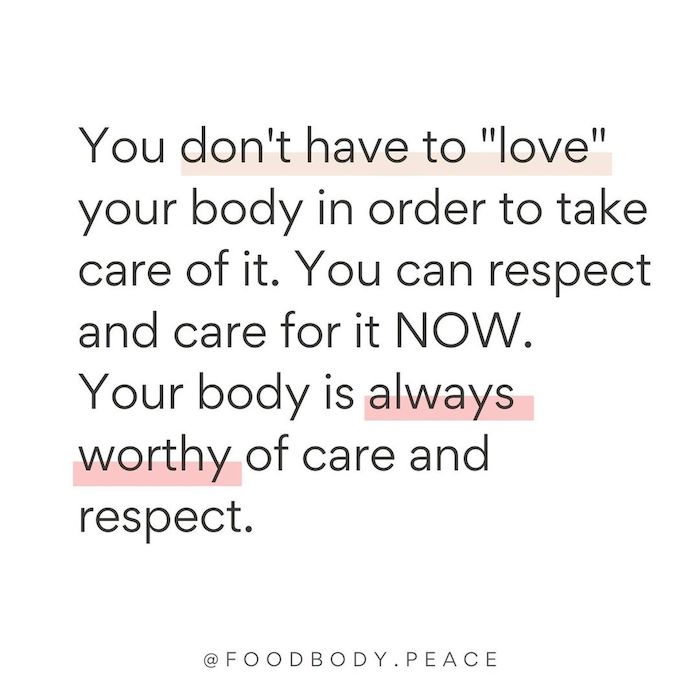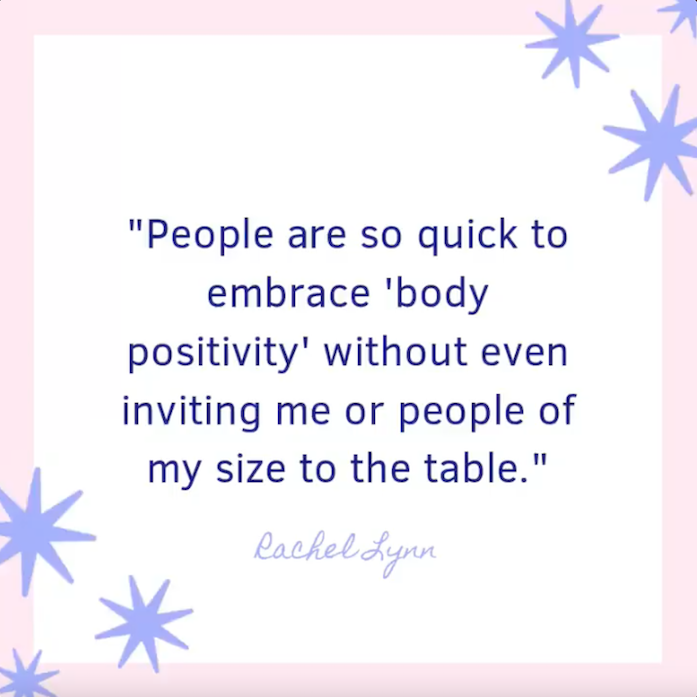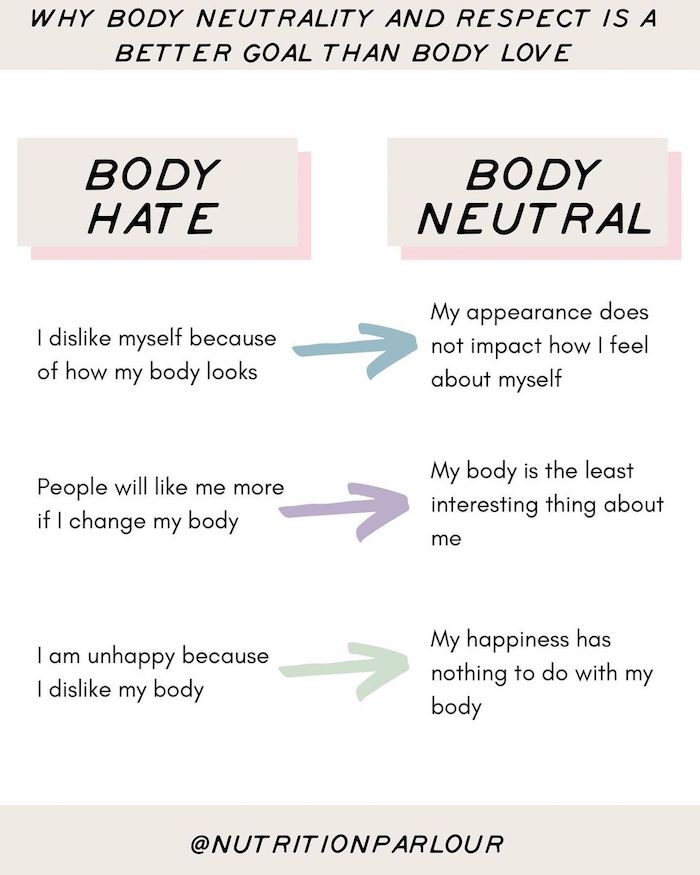HEALTH
Wellness
What is body neutrality and is it better than body positivity?

Content warning: This piece discusses body image, fatphobia.
Similar to many people's journeys with their bodies, the body positivity movement is complex. We've seen the rise of "body positivity" as a buzzphrase all across social media, promoting self love, confidence and self acceptance—which are obviously all *incredibly* important. However, the body positivity movement's history has widely been ignored and, in some ways, has morphed to expose, for some, underlying negative connotations.
In response to mainstream body positivity, many have turned to body neutrality as a healthier alternative. While every single person's journey with their body is different and unique, you may want to consider practicing—or at least learning more about—body neutrality over body positivity.
What is body neutrality?
The term originated in 2015 and was popularized by bloggers such as Gabi Gregg and Stephanie Yeboah. In short, body neutrality means accepting your body as it is, without equating your worth with your physical appearance.
Like the name suggests, practicing body neutrality means having a *neutral* attitude towards your body. It's totally normal and OK to not *love* your body 24/7—self love isn't an easy or simple journey! Rather than centering your physical appearance, body neutrality encourages you to acknowledge and appreciate your body's abilities. After all, your body is what allows you to move, communicate and explore the world.
How is body neutrality different from body positivity?
The body positivity movement—in its most recent form—emphasizes self love, positive body image and the idea that all bodies are beautiful. Body positivity encourages you to accept and love the features of your body that you dislike or may not fit societal beauty standards.
Body neutrality, on the other hand, decentralizes your body's appearance from the conversation in the first place. Since unconditional self love is simply unrealistic for many people, body neutrality provides a ~middle ground~ between body negativity and body positivity—a way to make peace with your body.
The downsides of the body positivity movement
Toxic positivity
If you've ever felt that repeating positive affirmations to yourself isn't effective for you, then you're not alone. Studies have shown that regularly repeating positive statements about yourself that you don't actually believe (e.g. "My body is beautiful") can actually create *more* stress and resentment about your body, making you feel worse. Additionally, when you have *those* negative body image days, toxic positivity can make you feel guilty about not following self love mantras at all times.
Exclusion in the movement
Let's face it—conventionally attractive, white and thin people are often the centers of our society, gaining the most following and influence. Seeing influencers who fit the beauty standard tell you to simply "love yourself" can be disheartening, especially when they look nothing like you. Mainstream body positivity and its messages can sometimes exclude people of color, people with disabilities and members of the LGBTQIA+ community.
Though thinner people often dominate the current body positive scene, the history of body positivity actually started with the Fat Rights Movement in the 1970s. In 1973, a group of feminists based in Los Angeles formed the Fat Underground and called for "fat liberation," also known as "equal rights for fat people in all areas in life." But now, the messages of body positivity can sometimes "other" people of bigger sizes, treating them differently and not letting them join the forefront.
False conceptions of "beauty"
Your physical appearance is NOT an indication of your worth or value. "Beauty" is a social construct with no single definition; if beauty for you means wearing stylish outfits or emphasizing your eyes with mascara, that's valid. If beauty for you means sharing your empathy and kindness with others, then that's valid too. If you feel uncomfortable with how body positivity places a huge spotlight on your outward appearance, that's valid. You're more than how your body looks.
So...body neutrality vs. body positivity: which wins?
First of all: you aren't strange if you love your body or hate your body. Again, body acceptance and love is a journey, and it isn't always a linear process. There's absolutely *nothing* wrong with being body positive and loving your body, but if you find that body love isn't a realistic goal for you, consider practicing body neutrality:
1.) Move away from body-centric language. Instead of complimenting your friend on her snatched waist or pointing out your thighs, shift to conversations that don't revolve around physical appearances.
2.) Acknowledge and reframe negative thoughts. If you catch yourself thinking or saying some not-so-nice things about your body, first acknowledge that you are having those thoughts instead of beating yourself up over them. It's impossible to never have negative thoughts—you're human!
3.) Appreciate your body's functions. Take a moment to focus on your body's mechanisms, listening to your heartbeat and your breath, feeling the strength in your limbs and appreciating your brain.
4.) Be forgiving to yourself. Body neutrality and self acceptance takes time! You're not alone in this journey—consider reaching out to trusted friends, family or adults for support.
What are your experiences with body neutrality? Let us know @girlslifemag on Twitter!
Top image via @foodbody.peace
Slider image via @yogamaris
All GIFs via GIPHY
POSTED IN body image, self-esteem

 become a contributor
become a contributor















.png)




